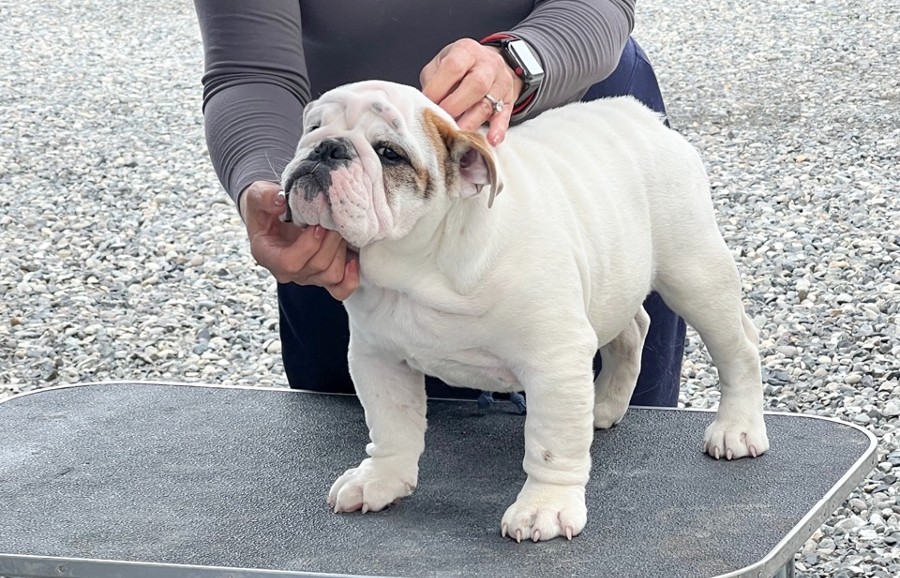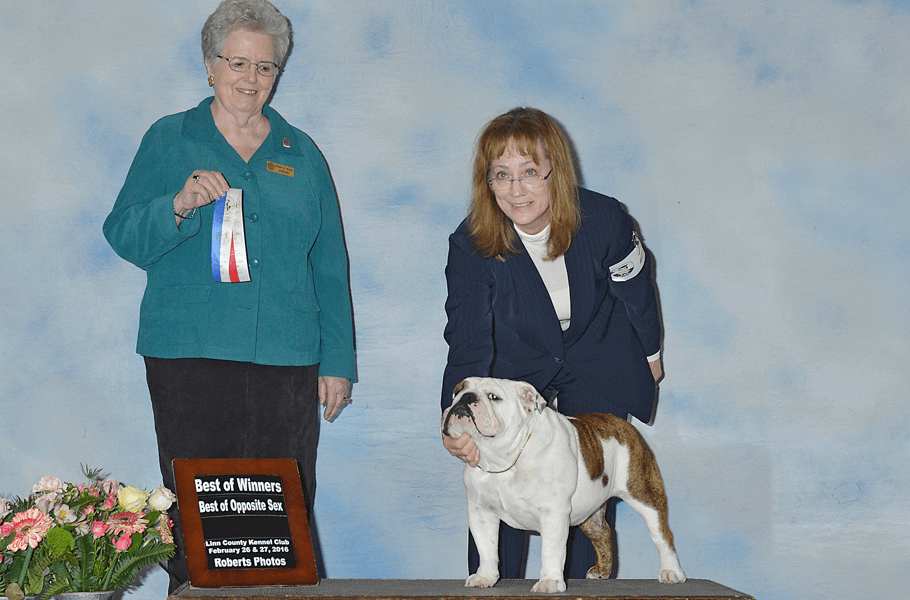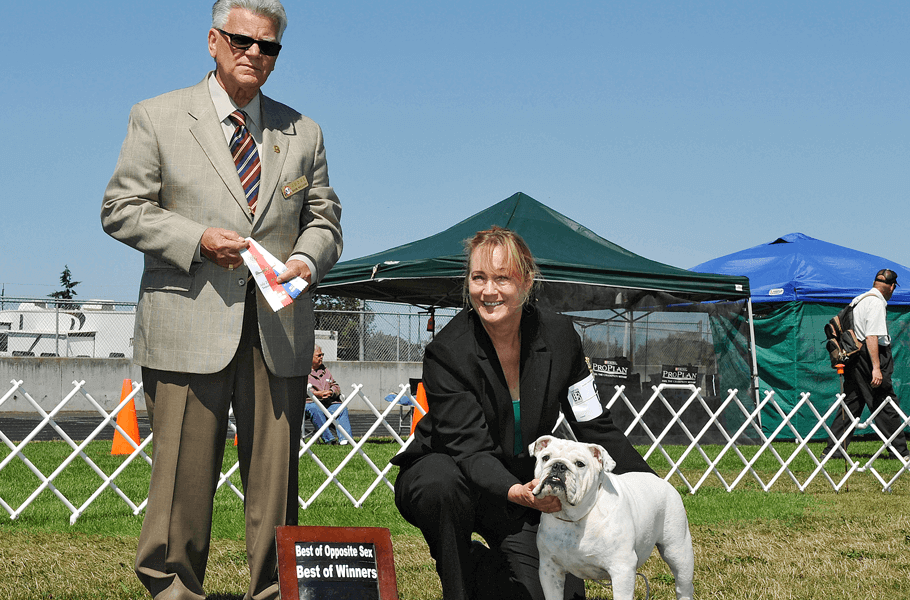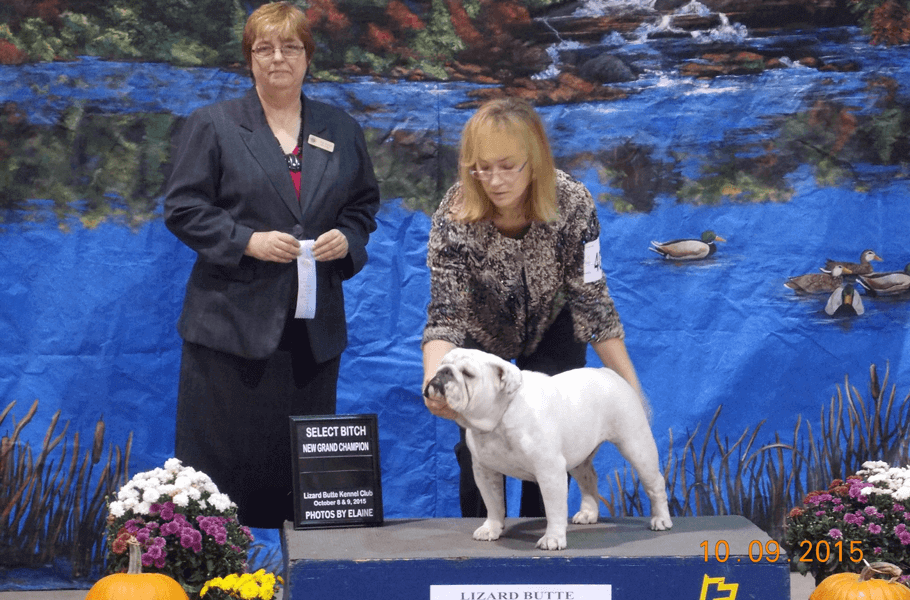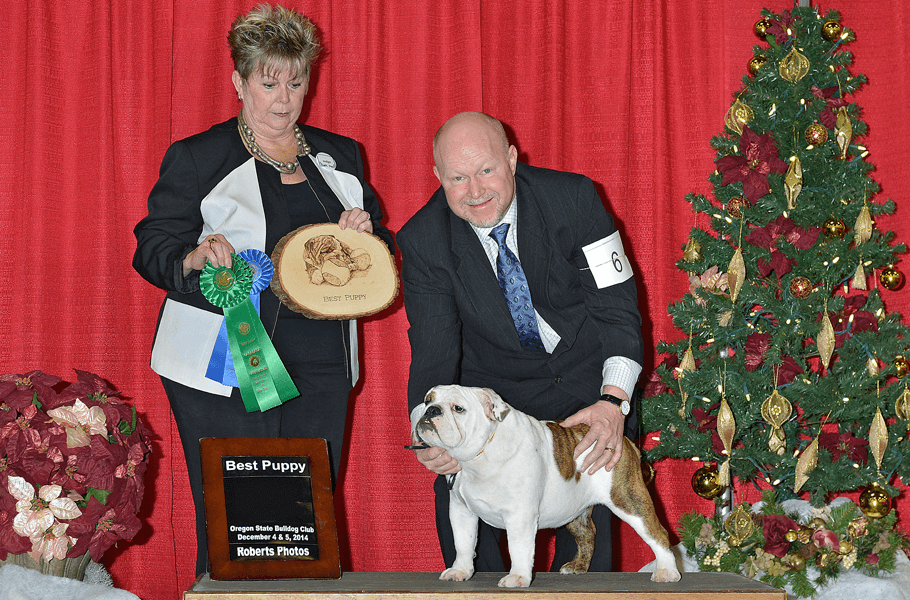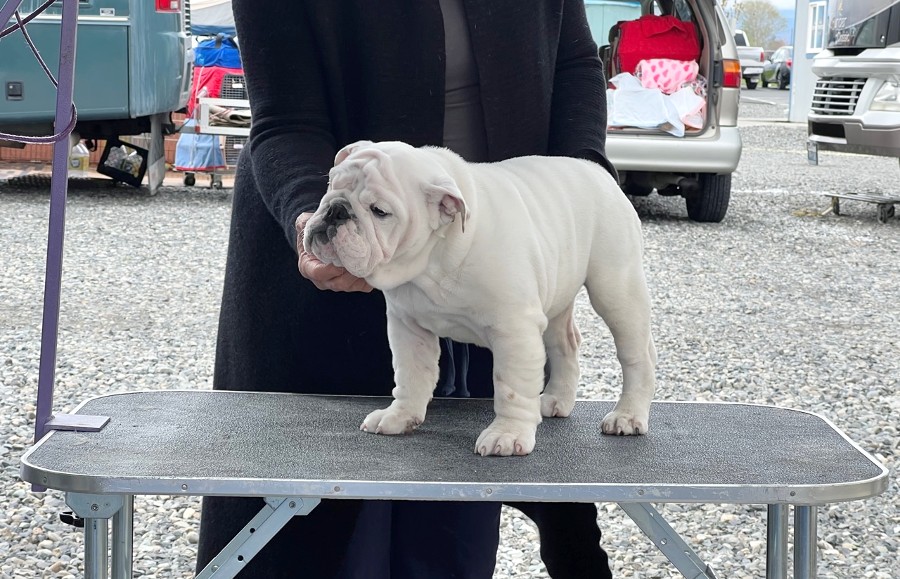FAQ
Below is a popular list of commonly asked questions about bulldogs. Click on any of the links below for more detailed answers.
Adopting a Bulldog:
If you want an easygoing, dependable dog that doesn’t bark often or require a lot of exercise, then a bulldog may be the perfect dog for you! If you’re looking for a guard dog or a pooch that can accompany you on long runs, then this gentle mellow friend may not be the best match. Read more…
Are bulldogs good family dogs?
Yes! The bulldog’s naturally laid-back and kind disposition make them excellent family dogs, so long as no one minds the occasional slobbery kiss! Their firm loyalty and gentle, patient personality also means they can tolerate a higher degree of rambunctious and rough play from children. They’re perfectly suited for babies and toddlers. Read more…
Do bulldogs shed?
Yes, bulldogs do shed, but no more than the average dog. Plus, because their fur is fine and short, the shedding isn’t as noticeable as it is with longer-haired breeds. Just make sure you have a lint brush on hand when wearing black!
Bulldog temperament: What are bulldogs like?
Despite popular opinion, not all bulldogs are sleepy and lazy couch potatoes. Yes, they can often be found snoring and snorting on the sofa, but they have a playful and energetic side as well. While every dog is different, in general, bulldogs are known for being loyal, calm, friendly and stubborn.
How much exercise do bulldogs need?
Like humans, bulldogs need a little exercise every day. Unlike humans, however, too much exercise can be dangerous to their health. Bulldogs are prone to hip, knee and joint injuries due to their short legs and heavy weight. Thus, it is a good idea to limit your bulldog’s exercise routine to 30 minutes per day.
Are bulldogs good with other dogs?
In general, bulldogs are good with other dogs. Bulldogs aren’t known for being aggressive or jealous and can get along with just about anyone. In fact, they will often feel protective of smaller dogs and pets (even the family cat!), taking care to take the smaller animal under their “wing” (paw?).
How much are bulldog puppies?
At an average cost of $2,000 to $5,000, the bulldog is one of the more expensive dog breeds. This is due to the fact that female bulldogs must be artificially inseminated and then delivered via caesarian section; two procedures that require expensive veterinary operations.
Bulldog Health:
How long do bulldogs live?
On average, bulldogs live between 8 and 10 years, though some live 12 or more years. When purchasing a bulldog, make sure you buy from a reputable breeder and that your pup’s parents don’t carry any genetic diseases. The healthier the dog, the longer it will live.
How big does a bulldog get?
The average male weighs 53-55 pounds (or 24-25 kg) and the average female, 49 to 51 pounds (22-23 kg). While there is no “healthy height” prescribed for bulldogs, show bulldogs that are shorter in stature are judged more favorably.
What are common bulldog health problems?
Common bulldog health problems include: respiratory disease, hip dysplasia and cherry eye. Bulldogs can also have problems keeping cool during the hot summer months and are known to develop bacterial infections in the folds of their skin. To minimize health problems, make sure you adopt a bulldog from a trustworthy breeder and keep your bulldog in air-conditioned areas during heat waves. Clean under the folds of their skin every day to avoid fold dermatitis and do not leave your bulldog unsupervised near a swimming pool or body of water, as bulldogs cannot swim. Read more…
General Questions:
“Bulldog”, “English bulldog” or “British bulldog”? Which name should you use?
“Bulldog” is the name you should use when referring to standard purebred bulldogs. People often use the term “English” or “British” to emphasize the fact they are referring to the standard bulldog versus another breed of bulldog, say, the French bulldog or the American bulldog, but the actual name for everyone’s favorite white, stocky, snub-nosed breed of canine is simply “bulldog”, according to the American Kennel Club.
What were bulldogs bred for?
Just like their name suggests, bulldogs were bred to guard, manage and bait bulls for both sport and as part of the cattle slaughter process. After the practice of bull-baiting was banned in the United Kingdom in 1835, bulldogs ceased to be classified as a sporting animal, and became a popular mascot and beloved companion dog instead. Today, according to the American Kennel Club, they are the 4th most popular dog breed
Types of Bulldogs: How many breeds are there?
There are five officially recognized breeds of bulldogs: The Bulldog, the American Bulldog, the Boxer, the French Bulldog, the Olde English Bulldog and the Alano Espanol.
Why do bulldogs sleep so much?
Bulldogs—like many other dog breeds—sleep an average of 12 to 14 hours per 24-hour cycle. One theory as to why dogs sleep so much is that that while they may doze for greater lengths of time than humans, they get far less REM sleep. 25 percent of human’s sleep is thought to be deep (i.e, REM) compared to just 10 percent of dogs’. Ironically, dogs are masters of the “cat nap”. Read more…
Training & Showing:
Are bulldogs easy to train?
Yes! Though some may mistaken the bulldog’s slow reaction times for a lack of intelligence, the bulldog is actually a quick learner. They may need extra coaxing, however, as they can be stubborn and may take a “What’s in it for me?” attitude to dog training. They are also sensitive, making loud commands unnecessary.
What are the various types of dog shows?
There are two types of dog shows: specialty and all-breed. While specialty dog shows are only open to a specific breed or breed grouping, an all-breed dog show is open to the over 130 breeds recognized by the American Kennel Club. The Bulldog Club of America Specialty, for example, is a specialty show strictly for bulldogs.
While there are two types of dog shows, there are eight other dog “events” a dog can compete in: field trials, obedience trials, lure coursing, hunting tests, herding trials, tracking and coonhound events. These events test instinct and trainability, whereas dog shows, referred to as conformation shows, test a dog’s conformation, or appearance and body structure.
What are conformation shows?
A “conformation show” (sometimes called a “breed show”) is what people are usually referring to when they talk about dog shows (the famous Westminster Dog Show is one such example). Unlike other dog events, like field trials, conformations do not measure a dog’s skill or ability. In a conformation show, judges are evaluating each breed based on appearance alone; they are looking to measure how well each dog conforms to the appearance, movement and temperament guidelines established in the breed’s standards.
What are the classes of dogs in a dog show?
There are seven purebred dog categories featured in conformation shows: sporting, hound, working, terrier, toy, non-sporting and herding. Bulldogs are presented in dog shows in the “non-sporting” group, along with other multi-purpose companion breeds, like the Bichon Frise, Boston terrier, Dalmatian and Poodle, among others.
How are bulldogs judged in dog shows?
Bulldogs are judged based on strict appearance standards illustrated in thorough detail in the Bulldog Breed Standard, which is published by the American Kennel Club. They are judged based on how closely their body and facial features match what is considered to be “the perfect bulldog”. Some of the physical features judges look at include: Facial symmetry and skull proportion, uniform coat color and the size, shape and placement of the ears, eyes and tail. Bulldogs are also judged based on their gait and temperament. When lead in the ring, their walk should appear shuffling yet unrestrained and their demeanor should be dignified and calm.
Bulldog breed standard: What look are breeders trying to achieve?
While the look breeders are trying to achieve is very specific and the characteristics numerous, some overall standards breeders aim for include:
- Medium-size build
- Wide shoulders and sturdy, straight forelegs
- A broad and flat top of head with ears that are level with the skull
- A lower jaw that is undershot and turned up
Do you win money at dog shows?
Typically people do not win money at dog shows, however, there are many exceptions to this. One club puts on a show each year and offers a $1000 purse for the best puppy at the show! People who show their dogs do not do it for compensation; it’s more like playing a competitive sport. People pay for their own travel and expenses, they compete for the thrill of winning, and they try to improve, but there’s no big money prize that acts as motivator. Like soccer players, dog show handlers are in it for the love of the competition!





